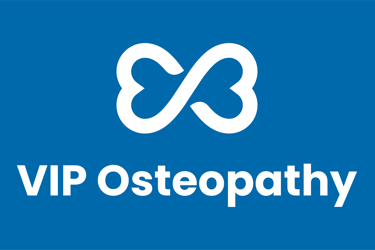Is Jaw Pain Wearing You Down?
Let’s Talk TMJ
VIP Osteopathy - Keilor
2 min read


If your jaw clicks when you yawn, feels tight by the end of the day, or gets sore after eating something chewy then you’re definitely not alone. At VIP Osteopathy, we often see people who’ve been putting up with jaw tension or pain for months (or years), not realising how much their TMJ (temporomandibular joint) is contributing to their overall discomfort.
What Exactly Is TMJ Dysfunction?
Your TMJ is the joint in front of your ear, that connects your jawbone to your skull. The TMJ moves every time you talk, chew, yawn, or clench your teeth. TMJ dysfunction happens when this joint or the surrounding muscles aren’t functioning as smoothly as they should.
Common signs and symptoms to look out for:
Clicking or popping sounds in the jaw
Jaw pain or tightness, sometimes radiating to the face, ears, or neck
Limited jaw movement or locking
Headaches, especially around the temples or behind the eyes
Discomfort when eating, talking, or even resting
Why Does It Happen?
There’s usually more than one thing going on. A few frequent contributors:
Teeth grinding or clenching—often linked to stress (even during sleep)
Postural habits, like slouching at a desk or looking down at your phone for hours
Tension holding—some people unknowingly keep their jaw clenched throughout the day
Hypermobility or instability in the joint
Previous trauma to the face, neck, or jaw (eg following a car accident)
Repetitive habits like chewing gum, nail biting, or resting your chin in your hand
Why It Matters
Persistent jaw pain or dysfunction can have a knock-on effect:
Affecting how you eat, speak, or sleep
May lead to neck and shoulder tightness or headaches
Increasing stress or frustration when symptoms linger
It’s not just a jaw issue, TMJ dysfunction can influence your overall wellbeing and daily comfort.
Osteopathy and TMJ
At VIP Osteopathy, we look beyond the jaw to see how the whole body is working together and what factors may be related or contributing to the jaw pain. We often find that jaw issues are linked to things like posture, breathing patterns, or even the way you hold tension, so treatment is tailored to what you need.
Osteopathic treatment may include:
Using hands-on techniques to release tension in the jaw, face, neck, and upper back
Improving joint mobility and reducing strain with joint articulation and stretching
Exploring postural and movement habits that contribute to the issue
Supporting you with techniques to stay on top of your symptoms at home
A Few Tips You Can Try at Home
These simple strategies may help with jaw tension between appointments:
Limit tough or chewy foods when symptoms are flaring
Limit jaw-loading habits such as chewing gum, pens, or holding your phone between your shoulder and ear
Check in with your jaw during the day: are you clenching without realising?
Sleep with a pillow that supports your neck in a neutral position
In Summary
TMJ dysfunction is common, but it’s also very treatable. The sooner we start addressing what’s driving it, the better the outcomes tend to be.
If your jaw has been giving you grief, don’t wait for it to settle on its own. We’re here to help you move, eat, speak, and live with more ease.
Contact us
Address: Consulting out of The Sports Recovery Hub
767 Old Calder Highway, Keilor, VIC, 3036
Telephone: 0476 807 144
Email: hello@viposteopathy.com.au
© 2025. All rights reserved.


